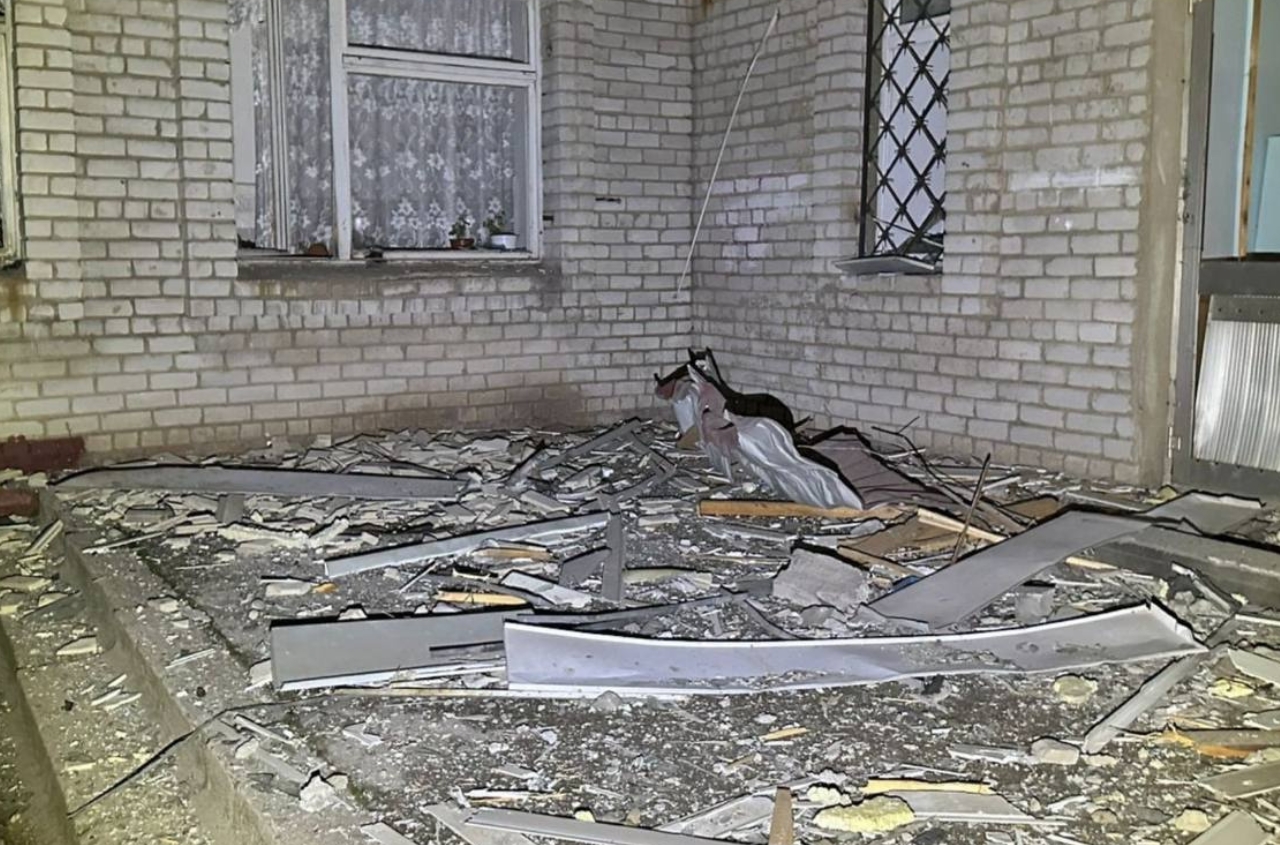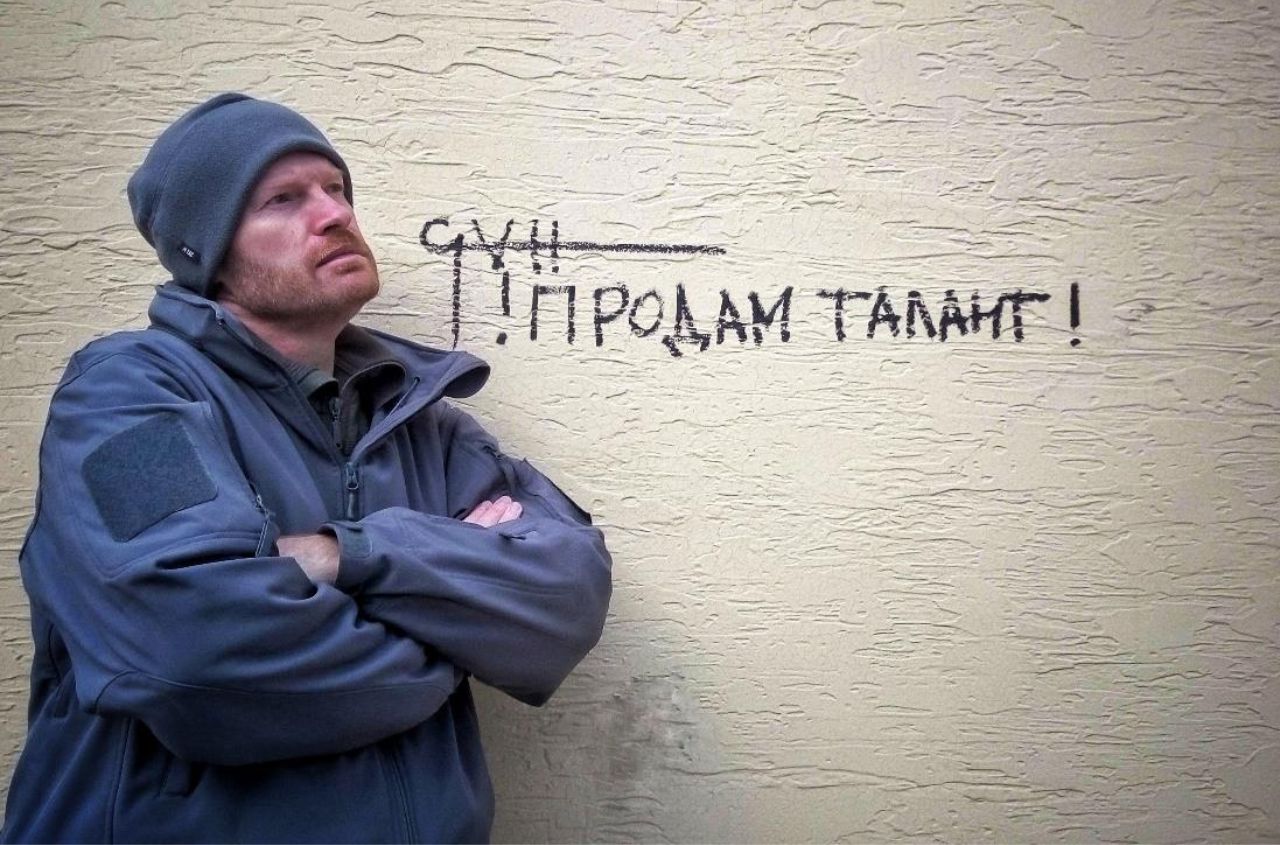A total of 60% of surveyed Ukrainians believe that Russia's ultimate goal in the war against Ukraine is either the destruction of the Ukrainian nation, forced assimilation of Ukrainians into Russians, or physical genocide of Ukrainians. These findings are based on a survey conducted by the Kyiv International Institute of Sociology from May 16-22.
Specifically, 34% of respondents indicated that Russia aims to destroy the Ukrainian nation, national identity, and forcibly assimilate Ukrainians into Russians. Meanwhile, 26% believe Russia intends to carry out physical genocide against the majority of the Ukrainian population.
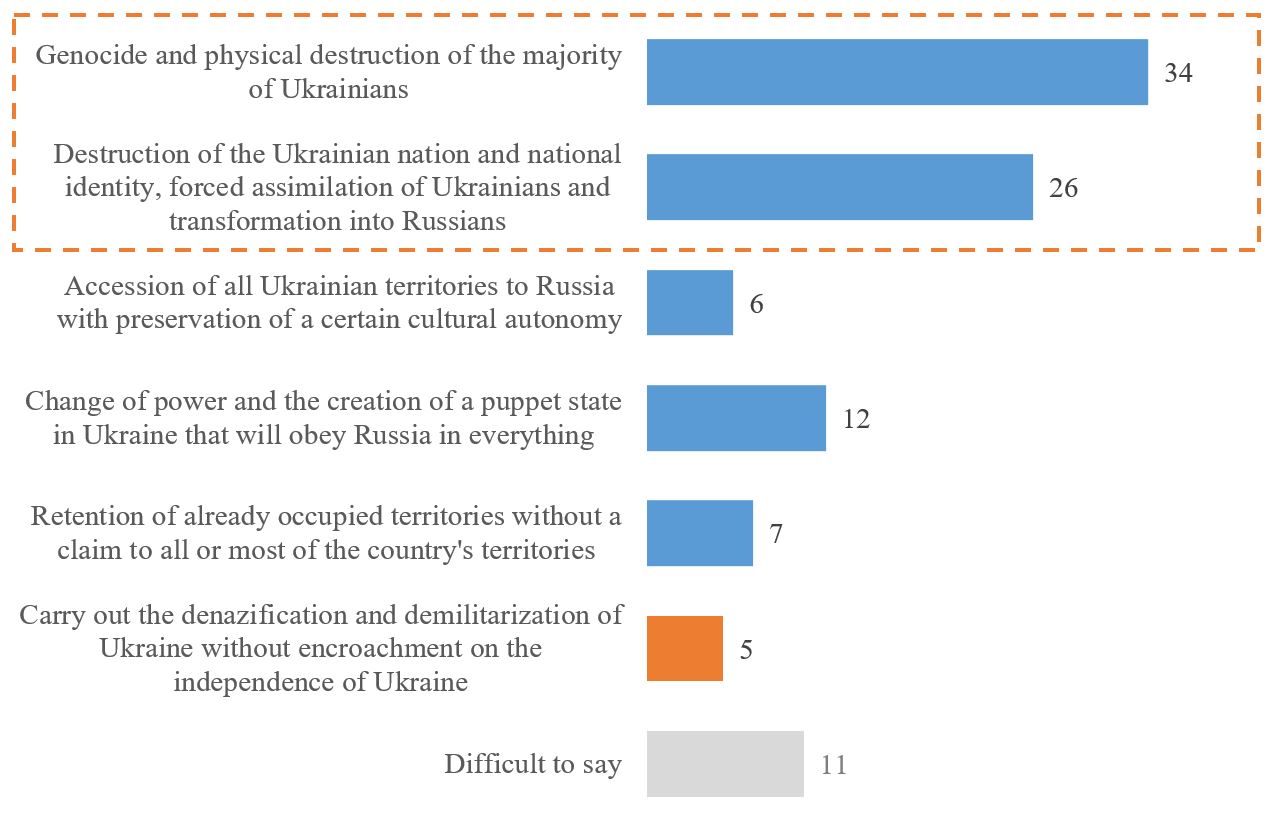
Additionally, 12% of those surveyed stated that Russia seeks to change Ukrainian governance and create a puppet state that would fully obey Russia in all matters.
Only 7% of Ukrainians believe that the aggressor aims to retain already occupied territories without claiming the entirety or majority of Ukrainian territories.
Another 6% of respondents think that Russia wants to control all territories while allowing them certain cultural autonomy within Russia.
In contrast, 5% of respondents believe that Russia's goal is the "denazification" and demilitarization of Ukraine without encroaching on its independence. This response aligns closely with Russian propaganda themes, according to sociologists.
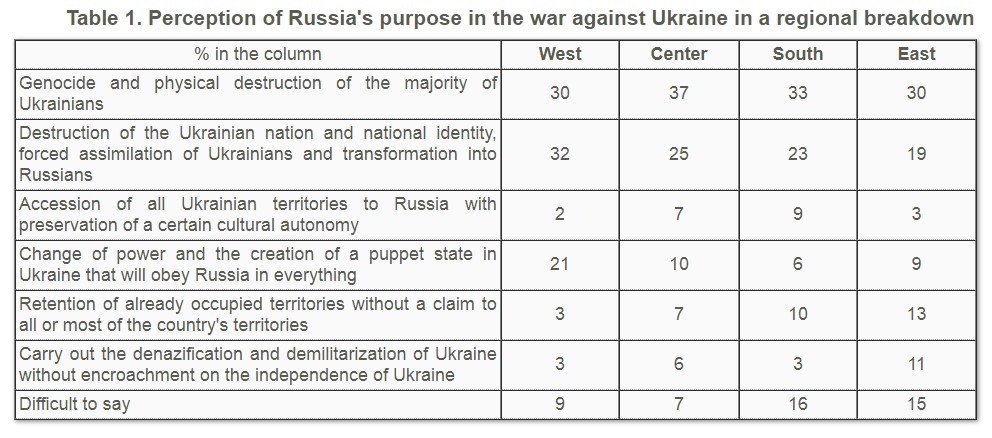
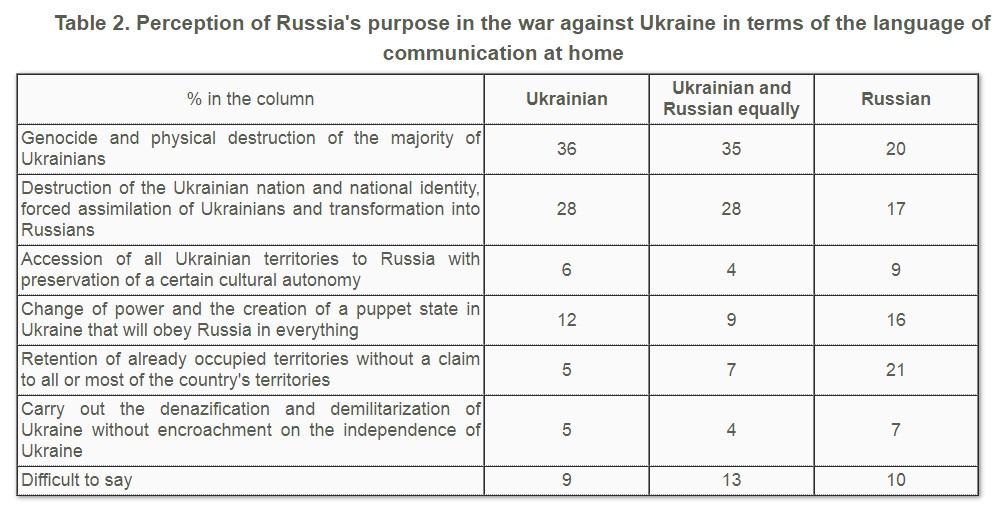
Regionally, a third of respondents from each region indicated Russia's intention to carry out genocide against Ukrainians. Responses regarding national assimilation and a puppet state decrease from the west to the east (from 32% to 19% and from 21% to 9%, respectively). Responses regarding the retention of occupied territories and "denazification" increase from the west to the east (from 3% to 13% and 11%, respectively).
In terms of language, respondents who speak Ukrainian at home were more inclined to believe in responses about genocide and assimilation. Meanwhile, Russian-speaking respondents slightly leaned more towards the response about a puppet state. The option of "denazification" showed no significant difference between Ukrainian and Russian speakers (5% and 7% respectively).
The survey was conducted via telephone interviews using a random sample of mobile phone numbers. A total of 1067 respondents aged 18 and over from all regions under the control of the Ukrainian government were interviewed. Under normal circumstances, the statistical margin of error for such a sample did not exceed 3.4% for indicators close to 50%, 3.0% for indicators close to 25%, 2.1% for indicators close to 10%, and 1.5% for indicators close to 5%.
















